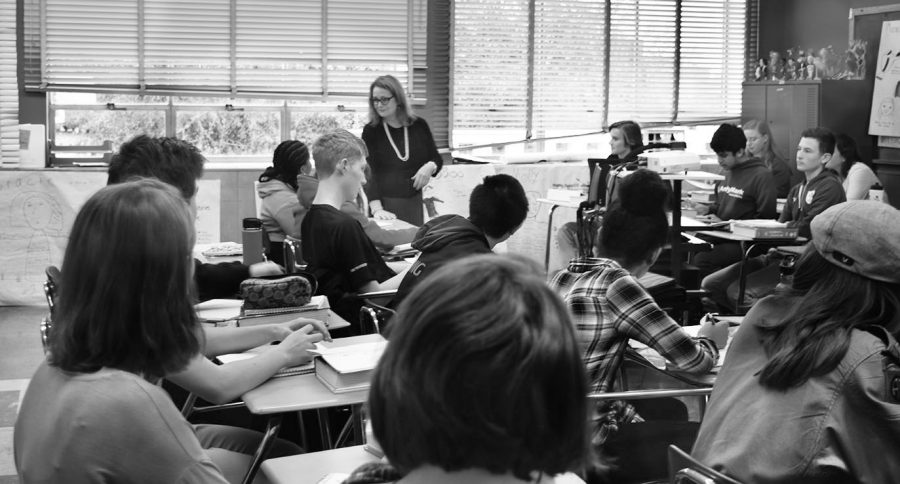Diversifying literature
The Great Gatsby, Catcher in the Rye, Fahrenheit 451: All well-written novels that English classes at Lincoln read every year, all considered to be classics. However, what these novels also have in common is that all were written by white males, and all have white males as main characters.
Many English teachers at Lincoln choose to read critically acclaimed works that have been praised for decades. However, the unfortunate truth is that many of these texts have little to no diversity when it comes to characters or the people who write them.
Senior Renee Zhang said doesn’t recall reading many books at Lincoln that dealt with issues surrounding race. In her time in high school, “a lot of the books we read are about inner conflict, and nothing to do with race relations.”
Lack of diversity in literature can be more detrimental to students and their development than many people might realize. It can make students feel underrepresented, and condition people of color and white people to believe that heroes are typically caucasian males and occasionally females.
The reason for repeating these old and diverse books, Diversity in Literature Club President Anisha RajBhandary suspects, is because, “a lot of these are books that have been taught a lot in the past…and it’s more difficult to introduce new books that haven’t been used as often.”
That is one possible reason that many students at Lincoln have read books that don’t include a lot of diversity and don’t deal with any race relations.
However, English teacher Barbara Brown says Lincoln is already on its way to being a more literary-diverse school. According to Brown, “All the literature in the first semester,” is written by people of a diverse heritage and genders. She teaches writings to her freshman class that she refers to as her, “multicultural unit.” In that unit, she said, they read works by women, African-American and Native American writers, in an effort to teach some of the “unheard voices.”
The installation of a gender neutral bathroom, and the creation of new clubs like Diversity in Literature and Sisters of Color are just small steps in Lincoln’s progression to be a more diverse school. A diverse school must include diversity among students, extra curriculars, and even in literature.
For Lincoln junior Logan Brueckner in his opinion, the further back in time we go to get our novels “the more whitewashed” they are going to be and he thinks “it’s gonna take time for that to change.” With so many increasing problems with racism some may wonder if literature is really important enough to focus on, or whether it really has a negative affect. However RajBhandary argues that diversifying literature allows people to start “breaking down stereotypes,” and helps people who don’t belong to a minority to gain insight “and become more aware.”
For Lincoln, increasing diversity in literature seems to be an easy task with the multicultural units and Diversity in Literature clubs that already exist. With students and faculty dedicated to making this shift, eventually the literature we teach will reflect the multiculturalism and diversity within our society.

